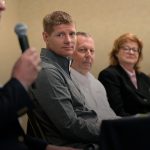Industry Leaders Share Insights on Environmental, Social, and Governance Impacts and Reimagining the Future of Manufacturing
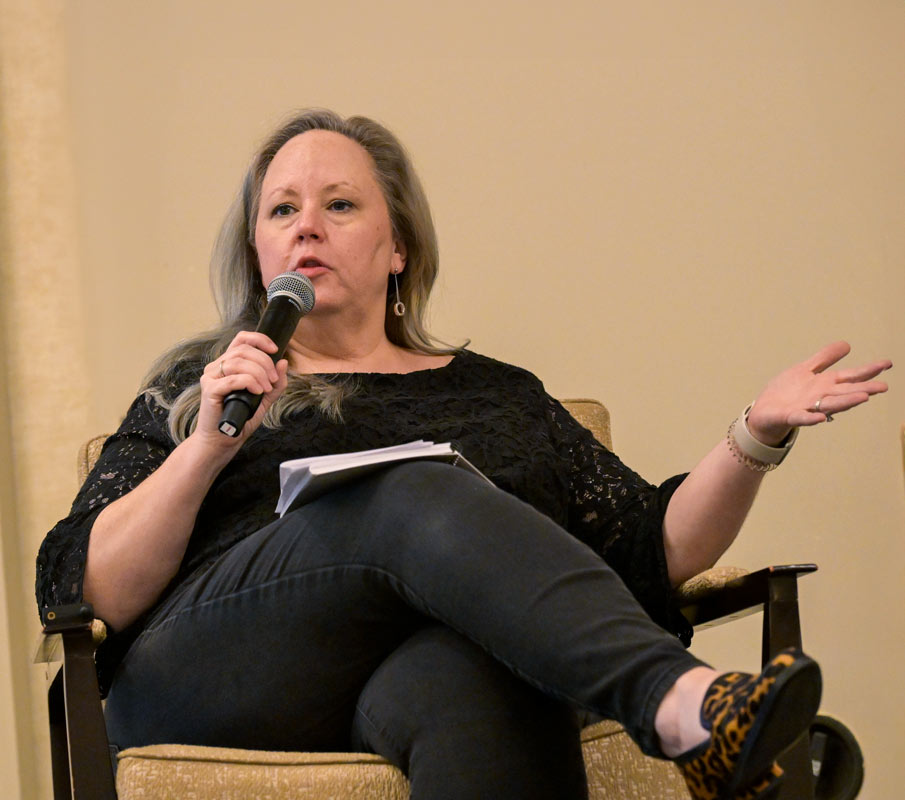
The final keynote panel during this year’s eChemExpo featured three industry leaders speaking on environmental, social, and governance (ESG). Also known as ESG, the topic is a way of investing in companies based on their commitment to one or more ESG factors. It is also called sustainable investing, socially responsible investing, and impact investing, according to the U.S. Securities and Exchange Commission.
The panel was moderated by Holli Alexander, Strategic Initiatives Manager, Circularity, Eastman Chemical Company. Chemical companies that aren’t doing things to improve their sustainability and carbon footprint will not exist in the future, said Jayme Leita, director of scale-up and process innovation at Eastman Chemical Company.
“Sustainability means a lot for Eastman,” Leita said.
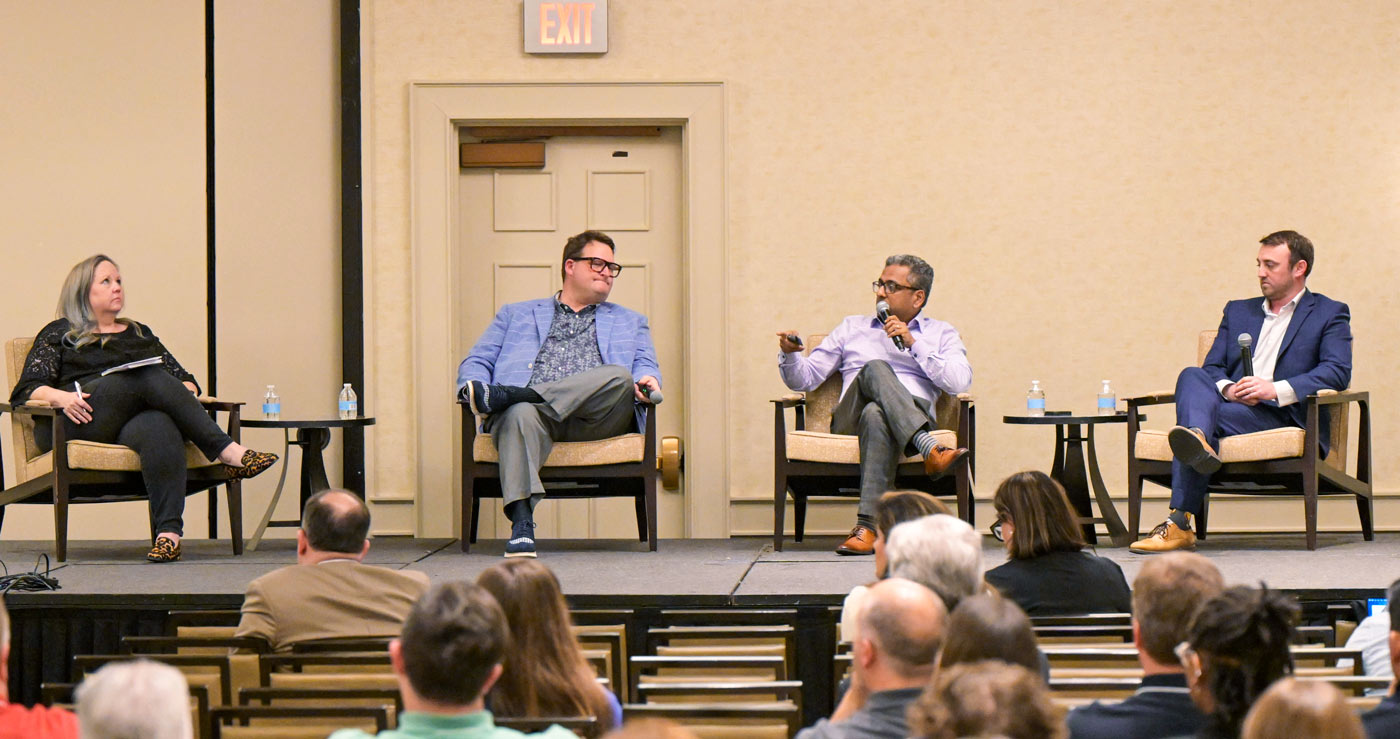
Eastman’s goal is to decrease its emissions to zero by 2050. By 2030, we’re going to cut it by a third,” he added. “We’re already about halfway there
—Jayme Leita, Director of Scale-up and Process Innovation, Eastman Chemical Company
Leita shared the stage with Tathagata Basu, global head of refining and downstream at Honeywell and Zack Steffen, who leads the industrial utility division at Trackonomy Systems. Holli Alexander, the strategic initiatives manager for circularity at Eastman, served as moderator.
Eastman has centered its efforts on sustainability around two macro trends, Leita said, including carbon footprint and the plastic waste crisis.
Leita said Eastman’s goal is to decrease its emissions to zero by 2050. “By 2030, we’re going to cut it by a third,” he added. “We’re already about halfway there.” Leita said, “This is exciting to me that we are absolutely committed to that.”
Eastman’s efforts to decrease emissions are centered on direct emissions and indirect emissions. He described direct emissions as “coal that we burn” and “chemicals that we emit.”
Indirect emissions involved energy that Eastman buys, such as electricity from Appalachian Electric Power, one of the utilities that serves the region around Kingsport.
How will Eastman accomplish its goals? First, Leita said the company is focusing on energy efficiency and “making the same product with less energy.”
The Kingsport, Tennessee-based corporation is also designing new facilities with lower carbon imprints. Leita said 100% of purchased electricity will be renewable energy. The company will also switch its machines from coal to natural gas, and the company will also focus on carbon capture, nuclear power, and clean hydrogen.
Eastman is also considering using small-scale nuclear power. “I would put that in my backyard,” Leita said.
Regarding plastic waste, Eastman has developed three molecular recycling plants, one in Kingsport, which just began operations, one in Normandy, France, and another in Texas.
Leita said only about 12% of waste is actually recycled. “That’s a really, really big problem,” he said.
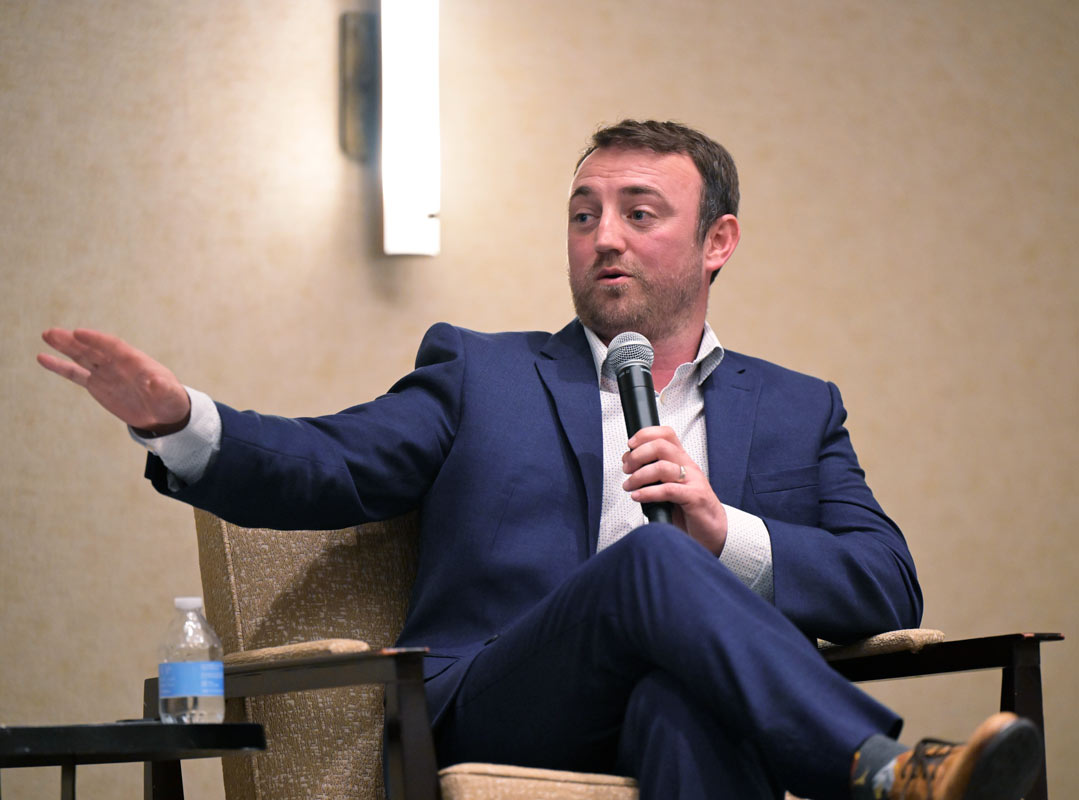
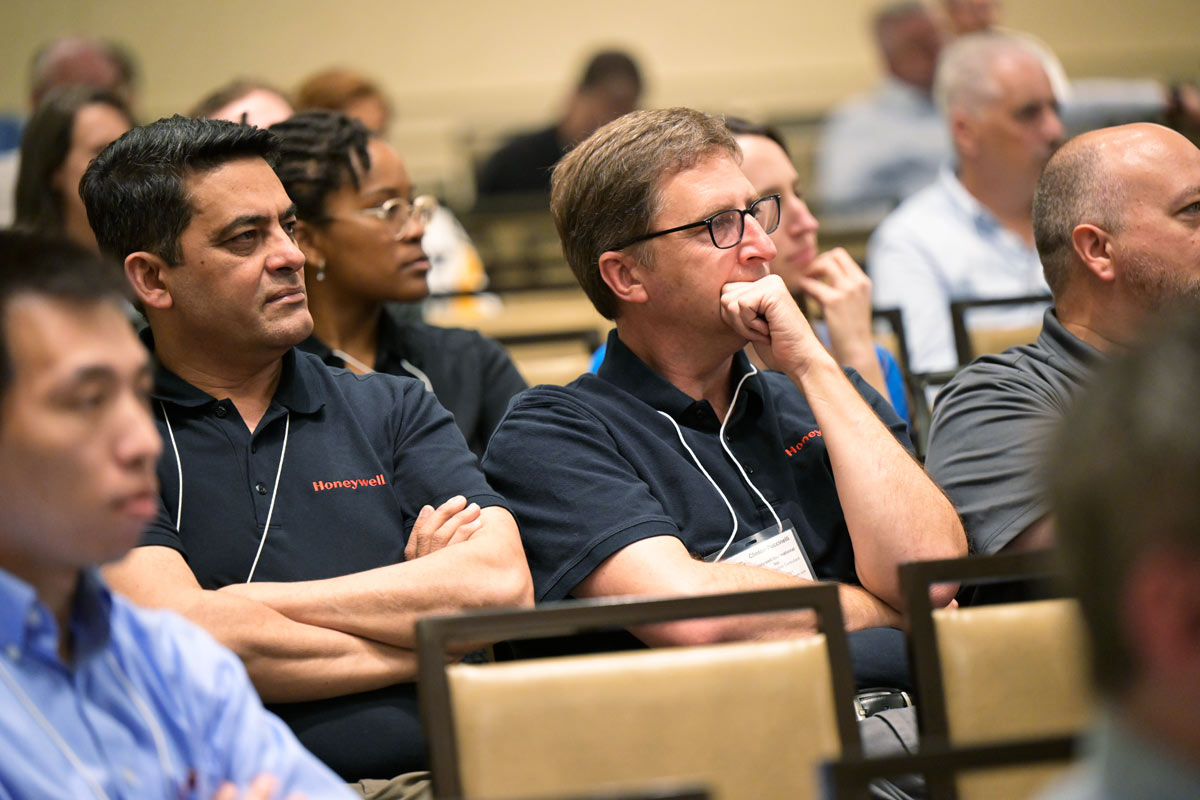
My job is at the crossroads of using digital technology to solve some of the most hard to evade industry and sustainability problems
—Tathagata Basu, Global Head of Refining and Downstream, Honeywell
I see the fundamental shift of what's going on
—Zack Steffen, Leader, Industrial Utility Division, Trackonomy Systems
Basu said his job is at the crossroads of using digital technology “to solve some of the most hard-to-evade industry and sustainability problems.” He added that Honeywell also produces chemicals, such as fluoride-based refrigerants.
“So we have our own ESG footprint. We have our own footprint of carbon intensity that we are working on reducing,” Basu said.
Honeywell has a suite of technologies to help customers improve sustainability, he said. The company has completed more than 6,500 projects since 2010. The company has technology that has produced bio-derived materials.
“We also have our own licensed plastic recycling processes for our cycle, which we are piloting with some of your competitors,” Basu said. “On the energy evolution, we produce, we have technology that produces sustainable aviation tools.”
Basu said the company sold its 50th license this year to prospective customers. “We have technology to produce both blue and green hydrogen,” he said.
Honeywell is also investing in developing its battery energy storage systems, he added.
Basu also spoke about molecules that Honeywell produces. “We come up with a very unique technology, very low global warming potential molecules, which we are using for refrigeration in grocery stores,” he said.
Basu added, “The last one, which is what I’m going to talk about, is on the digital side. We are developing, and we have developed solutions for real-time tracking of carbon intensity and recording, and the entire carbon intensity management, which is measure, monitor, reduce, and report.”
Steffen, who leads the industrial utility division at Trackonomy Systems, shared some of the company’s applications “that have some of the real-world examples of how ESG has been impacted from some of our customers.”
Trackonomy serves “behind the scenes” for many of its customers, Steffen said. His company assisted UPS to distribute the COVID-19 vaccine. “So, they’ve never been able to achieve this level of efficiency of 99.9% on-time delivery,” he said.
Today, Steffen said Trackonomy has technology that alerts UPS milliseconds that they have misloaded a package, “so it gets on the right truck and you don’t have all those reverse logistics.”
Trackonomy works with numerous industry sectors, including health care, industry, government defense, and utility, which includes helping utilities identify an energy outage or downed power line within four milliseconds, Steffen said.
“It’s just not a feel-good mission, like we all need to do our part,” he said.
Thinking about the future, Alexander referred to Leita, “you were basically saying that chemical companies who are not doing these types of things will not be operational in the future. But let’s think 20 years from now, what does manufacturing look like? What about 30 years from now? What do you guys imagine in the future?”
Leita said, referring to Eastman’s molecular recycling plant, “Because 10 years ago, we couldn’t make money with it. And we killed the project. But today, because most of our kids, the parents in this room, our children, they really care about the environment.”
Leita said he believes manufacturers will have to compete to make sure carbon intensity is low, fossil fuel availability will decrease, and costs will go up.
Steffen said many of Trackonomy’s customers are focusing on improving their carbon footprints. “I see the fundamental shift of what’s going on,” he said.
Leita spoke about Eastman’s efforts to create molecular recycling plants in Kingsport, Texas, and France. “The next one that will be in France, we’re building that from the ground up. So in that case, we’re doing two things,” he said. “We’re changing the technology a little bit, so the plant will be more efficient, so it’ll have less emissions, and we have different sources of energy.”
About 80% of the energy used in France is nuclear energy.
In Texas, the plant will have a solar farm, Leita said, “and we’re gonna take advantage of these thermal batteries.
So we have our own ESG footprint. We have our own footprint of carbon intensity that we are working on reducing
—Tathagata Basu, Global Head of Refining and Downstream, Honeywell

